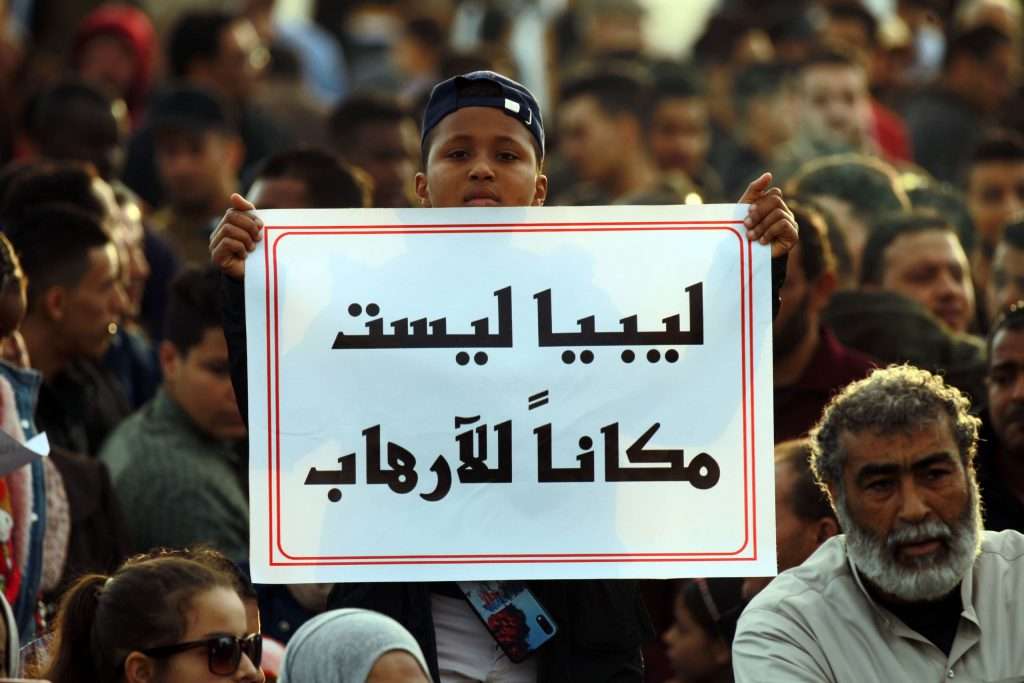The United Stated denied on Saturday its intention to deploy combat troops in Tunisia to monitor the current developments in Libya.
A statement issued by the U.S. Military Command in Africa (AFRICOM) based in Stuttgart, Germany, confirmed on Saturday that what was mentioned in the previous statement about its intention to publish a "security forces brigade" is intended as a small training unit and is part of the military assistance program, and is not intended in any way to combat military forces.
In response to allegations and news circulating about the possibility of deploying American combat forces in Tunisia, which linked between a previous statement of AFRICOM and a phone call between a commander AFRICOM and Tunisian Minister of Defense Imad Al-Hazqi, the same source added that "in the context of the ongoing dialogue, it is important to understand the potential needs and always search for new approaches and methods of partnership.”
Tunisia rejects any foreign military presence on its soil or the establishment of foreign military bases in Tunisia, especially under the rule of President Kais Saeid and the incumbent government.
Tunisia is linked to a military cooperation agreement signed in Washington in 2016, according to which Tunisia obtained technical and logistical assistance in the field of combating terrorism and related crimes such as terrorist financing and controlling financial transfers, etc.
In May 2016, Washington handed over to the Tunisian Ministry of Defense a border control and counter-terrorism system of $20 million consisting two jets and four-wheel drive cars.
Earlier, AFRICOM issued a statement and said: "We’re looking at new ways to address mutual security concerns with Tunisia, including the use of our Security Force Assistance Brigade."
Reports Claim AFRICOM Will Send Troops to Libya
The United States said it is considering deploying a Security Force Assistance Brigade in Tunisia for training, as part of its assistance program with the North Africa country, amid concern over Russian activity in Libya, according to the New York Times report published Saturday.
The U.S. military had said on Wednesday that Russian soldiers had delivered 14 MiG-29 and Sukhoi-24 aircraft to the Al-Jafra Air Force Base of eastern Libya. On the other hand, the Libyan National Army and a Russian parliamentarian denied that news.
[caption id="attachment_110465" align="aligncenter" width="1024"] A boy carries a sign reading Libya is not a place for terrorism'[/caption]
A boy carries a sign reading Libya is not a place for terrorism'[/caption]
Major-General Ahmed Al-Mismari, a spokesman for the National Libyan Army, said that the United States Africa Command (AFRICOM) repeated talk about Russia’s deployment of combat aircraft at the army’s Al-Jafra air base is “an outcome of a media campaign to which the LNA is being subjected, after its recent progress in fighting against the forces of the Government of National Accord (GNA) headed by Fayez al-Sarraj in the capital, Tripoli.”
Al-Mismari added that the media operations rooms in Turkey and internally, belonging to the Muslim Brotherhood group and the GNA, "broadcast rumors that the army acquired new warplanes," saying that the U.S. charges against Russia with deploying Russian aircraft were "incorrect."
In another regard, Russia warned, on Friday, the deterioration of the situation in the war-torn country.
Interfax news agency quoted a Russian Foreign Ministry spokeswoman, Maria Zakharova, as saying that foreign aid to the parties to the conflict had changed the balance of power on the ground in Libya.
For several months, Turkey has moved fighters from factions loyal to it in northern Syria to Tripoli to fight alongside the GNA forces and militias, backed by Ankara, against the Libyan National Army, led by Field Marshal Khalifa Haftar.
Moreover, the Secretary-General of the League of Arab States, Ahmed Aboul Gheit, again called for an immediate cessation of hostilities in the north African country and to engage in a political dialogue under the auspices of the United Nations to stop the bloodshed of Libyans, condemning foreign military interventions in its internal affairs.












